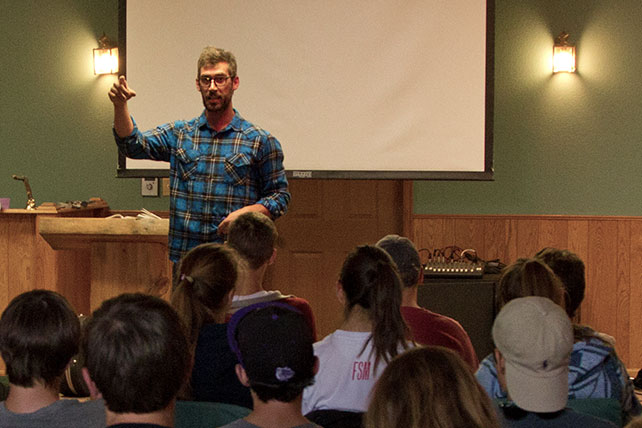The most effective preachers are continual learners. What separates ordinary preachers from extraordinary communicators is a relentless desire to improve. But there are so many things competing for your time it’s difficult to know which resources to take advantage of. To make it easier, I want to share three things you can do right now to communicate better as a preacher:
3 Ways To Become a Better Preacher
1. Read great preaching resources.
I once met with guy who was in his sophomore year in college. He felt a strong calling to be a pastor and wanted to know if he should change his major and pursue ministry as a career. I offered him some books to read that would help him think through his decision. He declined them, “I’m not much of a reader.”
“Well, then you won’t be much of a pastor.” I responded without thinking much about it.
He was surprised at my assessment that he should either become a reader or do something different for a living. I feel very strongly that those of us who preach have a responsibility to stay on top of what’s going on—to read, listen and pay attention to what’s happening around us. Some of the most important reading you can do is of resources that will coach you in your preaching.
Books. There are so many great books on preaching. A lot of them focus on sermon structure, sermon content and how to properly exegete a text. These books are important, but for our purposes today I want to recommend some preaching books that focus primarily on communication. Here are two books that will help you improve your communication skills as a preacher:
Communicating for a Change by Andy Stanley
Preaching: The Art of Narrative Exposition by Calvin Miller
Blogs. My favorite preaching blog is PreachingDonkey.com (can I say that?) because it focuses almost entirely on helping preachers communicate better. A great way to get started is to check out our top 10 most viewed posts. But there are so many other great blogs that will help you preach better. Here are three I love to read:
CareyNieuwhof.com Mostly about leadership in the church context. Insights from years in ministry leadership.
TonyMorganlive.com Great insights about what works and what doesn’t in church ministry and communications.
ThomRainer.com Extensive research on pastors and churches. Helpful and encouraging.
2. Watch other people preach.
This is the best time in history to learn from other preachers. You have free access to just about any preacher you want—every sermon they’ve preached. You can learn, grow, get ideas and be inspired by the best preachers in the world. Let me suggest three people to watch this week:
Andy Stanley—Engaging and insightful. He is masterful at speaking to unbelievers. This post will help you get started learning from Andy Stanley.
Matt Chandler—Deep, biblical and challenging. His preaching reaches down into your soul and pulls out amazing things. Seriously.
Craig Groeschel—Clear and practical. Strong vision and leadership comes out in his preaching.
3. Watch yourself preach.
Andy Stanley watches himself preach. If anyone could have said, “You know what, I’m good. I don’t need to improve,” it would have been him. He could have said that when he was a 30-year-old youth pastor because he was probably a really skilled communicator then. But the reason we’re still talking about him, and he’s still relevant in his mid-50s is because he never stopped critiquing himself. He watches every sermon he preaches.
You and I should too. You may be saying, “Oh, I can’t stand to watch myself on video! Oh, I can’t even bear!” Yes you can. Just do it. Take notes and improve. Watch (don’t just listen) to your sermons and see what you’re actually putting people through. If your church doesn’t video record the messages, you should change that. Until then, set up your iPhone inconspicuously in front of you and hit the record button.
This is not an exhaustive list, but it will get you started right now. What are some other resources or practices you would recommend to communicate better as a preacher?














